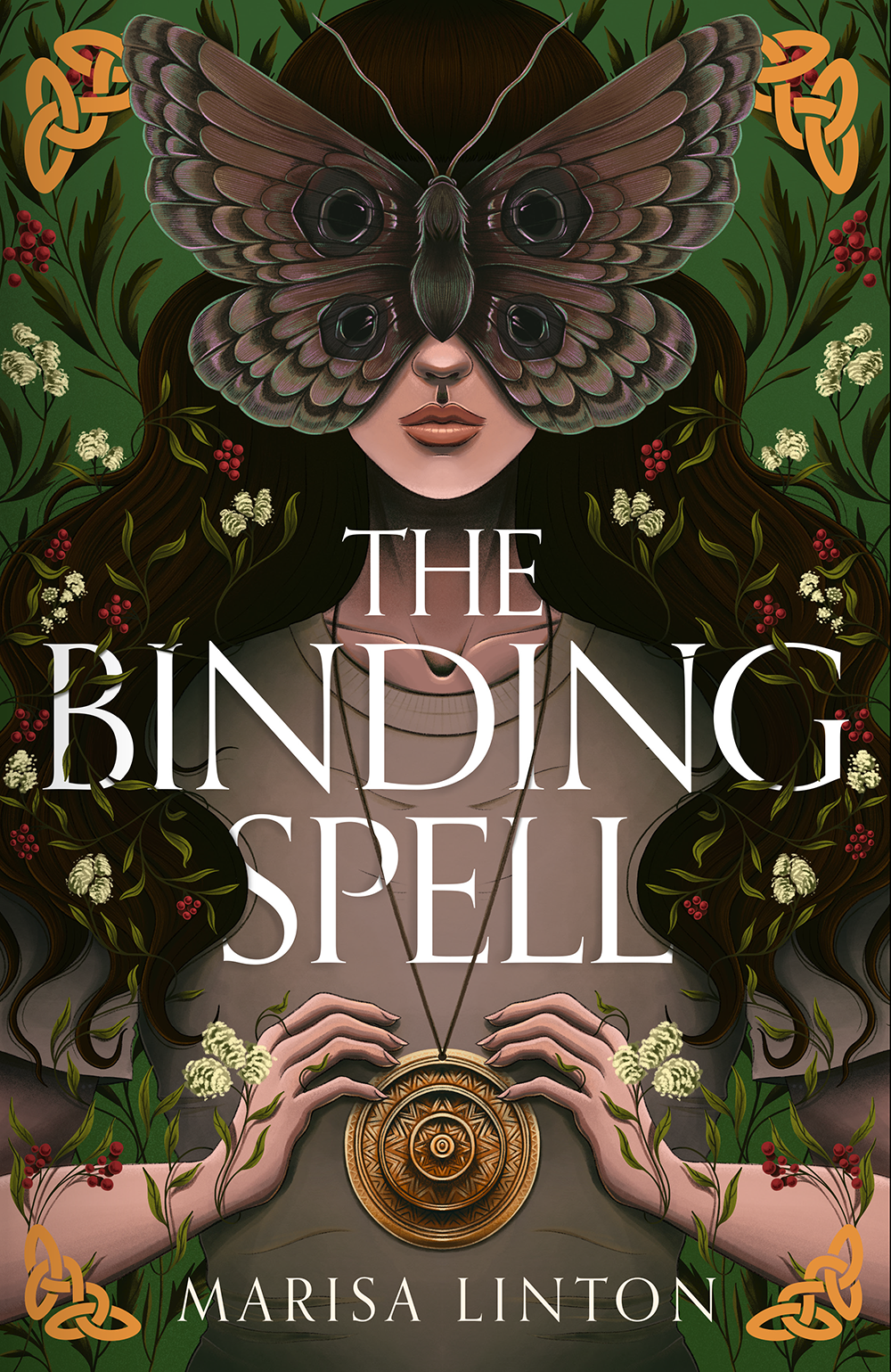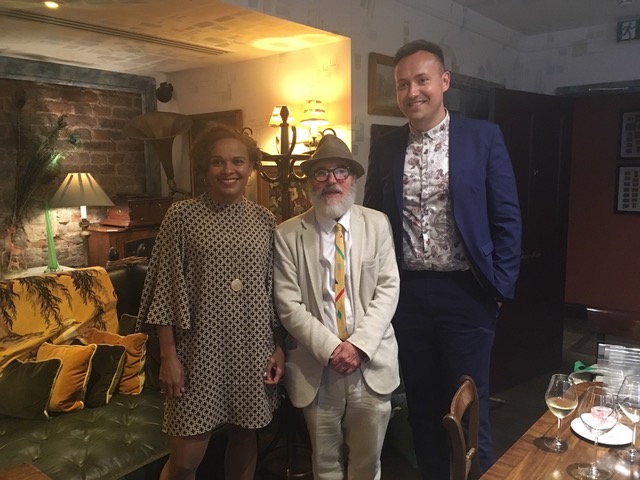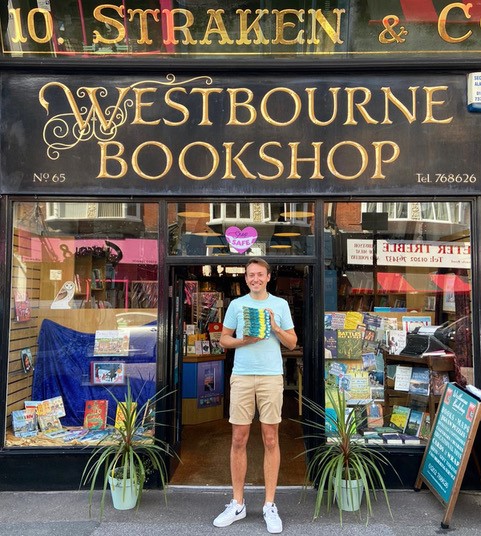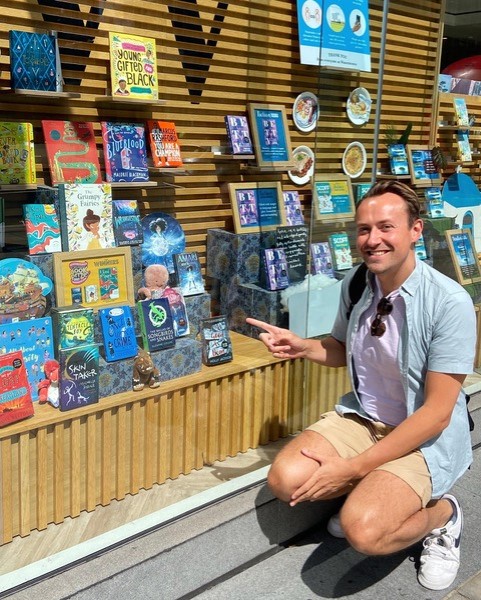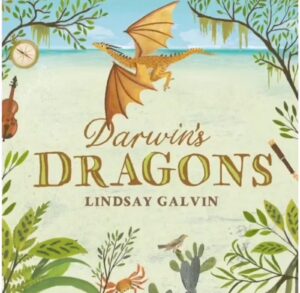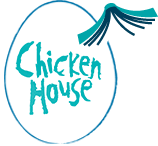What winning has meant for Marisa Linton
Marisa Linton won The Times Chicken House Children’s Fiction competition in 2023 – and that winning YA novel, The Binding Spell, is publishing incredibly soon.
A stand-alone contemporary fantasy novel that’s rich with folk horror elements, The Binding Spell launches on May 8th, and is available to pre-order now! Here, Marisa walks us through her path to publication through The Times Chicken House competition, and talks about all things rejection, making our long and short lists, and what it’s like to work with Chicken House … Enjoy – and over to you, Marisa!
______
The Binding Spell
I didn’t think The Binding Spell would be the kind of book Chicken House would want. It’s very much a young adult story, part folk horror, part burning romance, a kind of mash-up of The Wickerman and This Country.
A young family is stuck in a remote village, where the Dad is carrying out an archaeological dig – and he begins to uncover ancient Celtic artefacts that should have stayed hidden. His daughter starts to realise that this is bad – very bad. She suspects that the mysterious young guy she’s drawn to is somehow involved in the secret, but she can’t work out how.
Dealing with rejection
I’d already had a lot of rejections for the story. Sadly, rejection is a routine experience in this really tough industry. I wasn’t going to try The Times Chicken House Children’s Fiction Competition, thinking they would be looking for middlegrade novels (age 9–12), until a friend talked me into it just before the deadline. You lose nothing by trying.
I reworked my submission package (though the manuscript itself was the same one so many agents had turned down) and sent it off. I tried not to think about it, and got on with other projects. Easy to say, hard to do, though I’d had a lot of practice.
Making the long and short lists
When I made the longlist I kept my hopes in check, telling myself I could use that to query again. Then came the day Barry Cunningham (Publisher and Chicken House MD) phoned me to tell me I’d made the shortlist.
I have full-on imposter syndrome, and the call took me completely unawares. I couldn’t think straight. He asked what inspired me to write the book. I had no idea. I wasn’t even sure which book he was asking me about. I gabbled about liking old stuff. Barry waited patiently – I guess he’d met that kind of incoherent reaction before.
Winning the prize
Chicken House hosted a Big Breakfast event where the two winners were announced. It’s also where Chicken House and their authors talk about books they’ll publish in the coming year, with people from the publishing world come along to see what’s planned. I joined the other shortlistees, and we waited for the announcement to be made. I was convinced one of the others had won. They were all lovely and really nervous like me, and I’m sure they all really deserved it. But still . . . I clung on to those last few moments, thinking “at least you still have hope, they haven’t said yet that you haven’t won, not yet” …
When they called my book out, I was so stunned I couldn’t take it in. I worried they’d made a mistake. Imposter syndrome again. Someone nudged me to go up on the podium, and they handed me flowers, and a badge with the Chicken House logo. I think it was the homely touch of the badge that made me start to realise this was really happening, that my book would be published, that I had actually made it.
In that one moment everything changed for me. Afterwards the Chicken House team took all us shortlistees to a restaurant. Several previous winners came too. That personal touch and their sheer friendliness helps make Chicken House special. They work hard to support you, and make you feel that your book – and you – are important to them.
Publication is now on the horizon!
And now, sixteen months later, The Binding Spell is on the verge of being published. The process has been straightforward. The team is really supportive and professional. My editor, Shalu Vallepur, has been fantastic in guiding me through the edits, helping me make cuts and shape up the back story, and the final book is much better for it.
Why did my book win? Well, I’d like to think it’s because it’s the best book ever … Yeah, sure, in your dreams. But I do think that the way Chicken House chooses its winners makes a difference. The whole team is involved in reading the entries and everyone has their input. Seven judges make the final choice. Also, Barry himself – he’s set up a culture where the team can afford to follow their instincts, whereas the way that commercial publishing works makes most agents and editors very cautious and risk averse.
I still have the badge. Like the Romans with the statues of their household gods, I keep it in a special place – on the shelf beside the kitchen table where I write. To remind me – yes, this really did happen to you.
My best advice?
Write the book you really want to write, that only you can write, and make it the best you can. Be resilient when rejections come – which they will. Keep going regardless. And please enter this competition. You lose nothing by trying – and you may succeed.
Thank you for this amazing insight into the process, Marisa! To be in with a chance at winning the 2025 iteration of The Times/Chicken House Children’s Fiction Competition, please take a look at our submissions page. We can’t wait to read what you’re creating!
The girl with the rebel heart – Ally Sherrick
What if your country was at war? Except the enemy was made up of friends and neighbours, even members of your own family. And what if that enemy’s army was camped right outside your door, and refused to let you leave, threatening that if you didn’t surrender, it would fire its guns on you and burn your house to the ground?
That’s exactly what happens to 14-year-old Merriweather Pryce, the rebellious, brave-hearted hero of my new historical adventure story, Rebel Heart.
The book is set during an exciting but very dangerous time in our history known as the English – or British – Civil Wars when King Charles I and his supporters, known as royalist ‘cavaliers’, fought against Parliament and its army of ‘roundheads’ or ‘rebels’. When the story opens, a force of roundhead soldiers is preparing to attack Merri’s family home of Compton Blaize manor. With her father, Sir Richard Pryce, away fighting for the king and only a small troop of men to protect them, Merri fears her stepmother, Lady Ellinor is going to give up the fight before it’s even begun and surrender to the enemy. Determined to rescue Compton Blaize, she disguises herself in boy’s clothes, and with only her pet jackdaw, Merlin, for company, sets off to get help.
But in a land full of enemy soldiers, turncoats and spies, there are dangers at every turn and Merri will need all her wits and courage to save her home and her family ...
I got the first sparks of the idea for Merri’s story when I visited two very special places – Corfe Castle in Dorset, and Basing House in Hampshire, not far from where I live. They are both ruins now, but at the time of the Civil Wars nearly four hundred years ago, they were grand houses owned by families who, like Merriweather’s, were loyal to the king. Both shared the same fate, coming under attack or ‘siege’ by Parliament’s forces, and once captured, were deliberately ruined or ‘slighted’ to stop them taking part in the war again. But the thing which interested me most of all was learning about the brave women who had led their defence, holding out against the enemy and its guns for weeks on end while their husbands were away fighting.
This was enough to set my story whiskers twitching. After doing more research, I discovered plenty of other examples of courageous lady-defenders on both sides. Also, of other daring women and girls who acted as message-carriers, gold-smugglers and sometimes even as spies, or ‘intelligencers’ as they were called then. And then there were the women who disguised themselves as men and followed the army to be with their husbands, or else to join in the fight as soldiers in their own right. There’s a well-known story that Oliver Cromwell, the famous roundhead general and later Lord Protector, discovered a suspected young ‘she-soldier’ in his troop by asking her to sing.
When I started to cook up the characters – especially Merri and Lady Ellinor – and the plot for my story, how could I resist putting all of these brilliant ingredients into the pot? But I needed a villain too – which is where Abenazar Shine comes in. I won’t say any more about him though – I don’t want to ruin the surprise!
There are two nail-biting battle scenes in the book. The first is the famous, real-life Battle of Naseby, part of the exciting climax to Merri’s desperate mission to find her father and bring him back to defend their home. The second is the battle for Compton Blaize itself. As you might expect of a hero, Merriweather plays a key part in the action. But will the Pryce family motto – ‘Fearless and True’ – and Merri’s brave rebel heart be enough to save the day? You’ll have to read the book to find out!
Richard Pickard’s Journey to Publication
I first became aware of Chicken House in late 2015, in a bar at the National Theatre.
I was there to celebrate my friend Sam’s birthday, and many of his colleagues from the theatre were there too. One of those colleagues was MG Leonard, who Sam was excited to introduce as the soon-to-be-published author of Beetle Boy.
At this point I’d only just begun to secretly tinker with an idea for a children’s novel of my own, doodling an inky picture of a dilapidated pier, cut off from the land and swaying in the tide on four stilt-like legs. The image had come to me from my love of Brighton’s West Pier, and the thought of who might make a home in such an inhospitable environment ... a boy who is part-fish, of course!
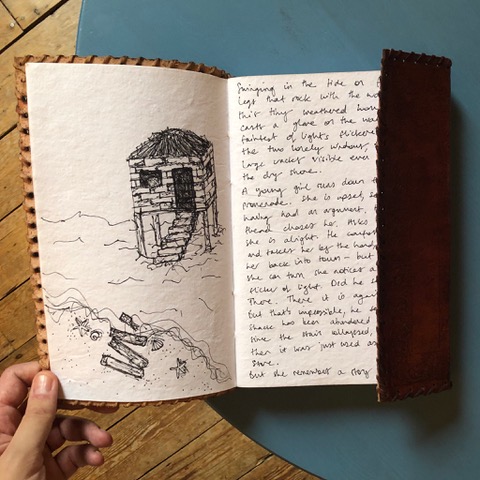
I’d never met a real-life children’s author before those fateful drinks at the National. I had loved the idea of becoming one as a kid, and had developed into a voracious reader in my teen years. But like those other childhood dreams of going into space or running off to join the circus, being an author was not something that had ever seemed realistic. And yet, here was a children’s author soon to be published by Chicken House. Sitting at the same long table as me and my friends.
Despite having only a few chapters of my secret novel on the page, I couldn’t resist looking at the Chicken House website to see how, one day, I might be able to get their attention myself. Like most other publishing houses, Chicken House doesn't accept unsolicited manuscripts, but I was intrigued to find details of The Times/Chicken House Children’s Fiction Competition. I made a mental note and promised myself that one day – when I finally had a finished novel – I would enter.
That day came over three years later, once I’d finally found the time to finish a draft of my story, then called Something Fishy. I knew the competition was a longshot but in early 2019, as I went to read the entry requirements for the umpteenth time, I was happy to find that my chances had been doubled by the addition of a second prize – the Chairman’s Prize – which would be awarded to a work that required slightly greater editorial input than the overall winner. I knew that if I had any chance of winning a publishing deal, this might be it.
I was sitting at my desk at work a few months later when an email came through from my now-Editor, Kesia, telling me I was longlisted for the prize. I didn’t think my heart would ever beat that fast again, until a few weeks later an unknown phone number based in Somerset popped up on my screen. I knew immediately it must be Chicken House, and when Barry Cunningham’s voice came down the line to tell me I’d made the shortlist I almost exploded.
So, it was with a great amount of nerves and excitement that, along with five other talented writers, I descended on London’s Zetter Townhouse for lunch with the judging panel. This esteemed group, including the author Nikesh Shukla and Waterstones buyer Florentyna Martin, had spent the morning discussing our novels. After the main course, Barry Cunningham stood to announce the winner – Children of the Quicksands, by Efua Traoré, followed by the recipient of the inaugural Chairman’s Prize ... me!
My entire journey to publication has felt incredibly surreal. From that chance meeting at the National Theatre, to the time I scanned a middle-grade section of a bookshop and found a literal space on the alphabetised shelf where a novel by someone named Pickard would sit. Two years on from winning the Chairman’s Prize and I’ve spent the last few weeks visiting bookstores to see The Peculiar Tale of the Tentacle Boy filling that very same space. Copies have been piled high on tables, face-out on shelves, and even sitting proudly in several windows – the cover’s blue foil glinting in the sun.
If you’re reading this and have a novel in progress, or perhaps a finished draft gathering dust in a drawer, then take a chance and enter the competition when it next opens in October. For me, it provided the end goal I required to keep moving forward with my draft as year after year I saw successful entries popping up in bookstores. I couldn’t have asked for a better home for my novel, and from working on the edits, to seeing my beautiful cover by Maxine Lee-Mackie for the very first time, the entire process has felt like a waking dream.
Now, I’m overjoyed to be drafting my second novel for Chicken House and am thrilled I get to ride this most-fantastic merry-go-round all over again.
Find out more about submissions here.
Emma Shevah on Earth Day
Emma Shevah, author of How to Save the World with a Chicken and an Egg, stops by the blog to celebrate Earth Day ... (more…)
Lindsay Galvin: Writing behind the mask and productivity in a pandemic
Here, DARWIN'S DRAGONS author Lindsay Galvin explores what writing and publishing a novel in a global pandemic is all about. Over to you Lindsay ...
By the time the pandemic hit this year, my new book Darwin’s Dragons was already finished, printed and ready to fly. But only a month before launch my real dragons were grounded, a decision agreed by all, until 2021.
I’d never imagined anything like it. So what does a writer do in this situation?
Try to stay in the air
Darwin’s Dragons is the start of a new venture for me, into middle-grade historical fiction. I found this genre suited me by accident, when drafting a backstory for how dragons could be discovered, and it felt so natural that the story grew from there. I needed to keep going and write the next thing, but Covid was everywhere and nothing was the same. I was devastated at the tragedies happening daily. My whole family were at home, so I was home-schooling, snack-providing and generally unable to retreat to a fictional world. My brain wasn’t in a good place. Bombarded with news, I couldn’t get in the headspace. At first this was frustrating, but I knew I had to accept I needed to find a landing space and hibernate for a while before I crash-landed, just like a real dragon would.
What do you do when you can’t do it?
But I couldn’t just sleep! I need to give my mind activity otherwise it will find it elsewhere in anxiety thoughts. I went back to research and reading. I knew the basic direction for my next book and watched documentaries, researched, and listened to audiobooks. I read other unrelated books, because I’m always behind on those and reading helps everything. And I relaxed and cut myself some slack.
The only way out is through
When things were calmer, I started to write again but changed up my routine. The kids were still home so I wrote in bed in the morning before I got up. Usually I would never do this – I’m not a morning person – but it was my only quiet time. I just plodded along slowly with no pressure on myself, other than to get some words down each day. New characters and worlds took shape slowly, slowly. I wasn’t working at my normal speed but I made myself accept that was okay in a global pandemic, and I gradually started to look forward to it. I wrote half a new story draft that way – very gently – and where it felt like I’d never be able to take off … finally, it did.
Flamingos never look like they are going to be able to fly … but they do.
Write on!
I think when tough times hit and your career is grounded for whatever reason, there are no easy answers. Creativity is an impetuous beast, a bit like my five-month-old puppy! You can’t force creativity to do as it’s told, you can only provide conditions (like giving yourself a treat!) so it might want to. Carve a little quiet time, be patient and trust. Creativity will come back to you, it always does.
If you've been inspired by Lindsay's words here, take a look at our Times Chicken House Children's Fiction competition for unagented/unpublished authors. Submissions are being accepted now!
Stuart Hill stops by our blog
Today marks the publication of a brand-new edition of Stuart Hill's classic novel The Cry of the Icemark! Stuart stopped by the blog to tell us about his journey from aspiring writer to award-winning published author ... (more…)
Happy birthday to NUMBERS!
Numbers author Rachel Ward stops by our blog on the tenth anniversary of her debut novel ... (more…)
Ceylan Scott on writing ON A SCALE OF ONE TO TEN
It's Mental Health Awareness Week, and so Ceylan Scott has stopped by the blog to talk about her experiences writing her debut novel On a Scale of One to Ten. (more…)
Get Your Bake On
The second novel in Laurel Remington's delicious Secret Cooking Club series, Confetti & Cake, is out now! Laurel has stopped by our blog to chat about why she loves The Great British Bake Off (who doesn't?)!
(more…)
NaNoWriMo Nov Day 24: Cathryn Constable
Today it's the turn of the wonderfully talented Cathryn Constable, author of the bestselling wintry adventure The Wolf Princess and her stunning new novel, The White Tower. (more…)
NaNoWriMo Nov Day 23: Sarah Rubin
It's day 23 of NaNoWriMo November! And joining us today on the blog is the wonderful Sarah Rubin, author of the Alice Jones mysteries – Sarah is no stranger to NaNoWriMo, and you can check out her awesome blog post about everything she's learned from taking part here. But for now, here are her top 5 tips for aspiring writers! (more…)
NaNoWriMo Nov Day 21: Sophia Bennett
We're nearly at the end of NaNoWriMo! With just over a week to go, here are some tips from acclaimed author (and previous Times/Chicken House Competition winner) Sophia Bennett to get you to the finish line ... (more…)
NaNoWriMo Nov Day 20: Dan Smith
Today Dan Smith – author of no less than FOUR Chicken House books, including Big Game and his most recent novel, Boy X – has stopped by the blog to share his top tips for aspiring writers.
What would be your five top tips to budding writers?
1. Read, read, read. If you’re not a reader, it’s a pretty safe bet that you’ll never be a writer.
2. Write, write, write. It sounds obvious, but you’ll never be a writer if you don’t write anything - and, like many other things, writing takes practice.
3. Write with confidence and assurance and let your imagination run wild. Write the kind of book you would want to read.
4. Don’t wait for inspiration. Just write.
5. Be yourself and don’t spend too much time listening to advice from other writers.
For those hoping to take part in NaNoWriMo or enter the Times/Chicken House Children’s Fiction Competition, what would be your best tip for writing something every day?
Just write. Don’t give up. Writing is hard work and there will be times when you don’t feel like it, but you need to find a time, sit down, and write. The words you put onto the page might be the most awful rubbish you have ever written (or they might be the most excellent) but they will be words on the page and you will be closer to your goal. Words on the page can be reshaped or deleted during the editing process, but no writing is just a blank page. So don’t ever give up.
Enter the Times/Chicken House Children's Fiction Competition to be in with a chance of winning a £10,000 publishing contract!
NaNoWriMo Nov Day 18: Lucy Strange
Today the author of the stunning The Secret of Nightingale Wood, Lucy Strange, is sharing her top writing tips for all aspiring writers. (more…)
NaNoWriMo Nov Day 17: Natasha Farrant
Next up is Natasha Farrant, author of the Pride & Prejudice-inspired Lydia: The Wild Girl of Pride & Prejudice, sharing her top tips for writers!
What would be your five top tips to budding writers?
1. Read extensively. Other writers are your best teachers.
2. Always have pen and paper (or other note taking device) handy. You never know when inspiration will strike.
3. That said, writing is a discipline. Sitting around waiting for inspiration never finished a novel. You need to put in the hours. It also helps to develop a routine.
4. Leave some time – at least a week, preferably a month – between finishing and re-reading. When you do re-read, be prepared to be ruthless. Accept that you will never get it right first go.
5. Read what you have written out loud. You will be amazed how much it helps.
For those hoping to take part in NaNoWriMo or enter the Times/Chicken House Children's Fiction Competition, what would be your best tip for writing something every day?
Be disciplined. Set yourself a target number of words every day, and stick to it. Even when it feels like you’re writing rubbish, stick to it. Bad words are better than no words at all and anyway, this is just the beginning of the process: the real work starts with the rewrites!
Enter the Times/Chicken House Children's Fiction Competition to be in with a chance of winning a £10,000 publishing contract!
NaNoWriMo Nov Day 15: Louise Gornall
We're halfway through NaNoWriMo November! Today it's the turn of Louise Gornall, author of the fantastic Under Rose-Tainted Skies, to share her top writing tips! (more…)
NaNoWriMo Nov Day 14: Catherine Doyle
Today the fantastic Catherine Doyle, author of the deliciously dark Blood for Blood series, shares her top writing tips ... (more…)
NaNoWriMo Nov Day 13: Alyssa Sheinmel
Today it's the turn of Faceless author Alyssa Sheinmel to share her five top writing tips for aspiring authors – take it away, Alyssa!
What would be your five top tips to budding writers?
1. Read. Read writers who wrote the type of writing that you’re trying to do yourself.
2. Read. Read writers whose work you look up to, whose stories might be very different from the stories you’re trying to tell, but who tell their stories so well that just reading them feels like a writing lesson.
3. Read. Do research on the story you’d like to tell – read articles, essays, interviews, the works.
4. Read. Pick up something a friend or teacher recommended that you’d never have thought to pick up otherwise – an author you’ve never heard of, a genre you never thought you’d be interested in.
5. And if all else fails ... Read. I honestly believe that every single thing I’ve ever read has taught me something about how to tell a story: books that I’ve loved and books that weren’t necessarily my cup of tea. Novels and non-fiction. Essays and articles. Even – and I really mean this – textbooks. Ideas can come from the most unexpected of places. A textbook taught me to insert humor into a dry topic. Magazine articles have prompted (sometimes completely unrelated) story ideas. Novel after novel has shown me beautiful and unexpected sentences. Essays have improved my vocabulary. For me, the essential thing isn’t always what I’m reading; sometimes it’s just enough that I’m reading. It’s still (and I suspect always will be) the piece of advice I most often give to myself about writing: just sit down and read.
For those hoping to take part in NaNoWriMo or enter the Times/Chicken House Children's Fiction Competition, what would be your best tip for writing something every day?
For me, I find it’s incredibly helpful to set a manageable goal for the day. That way, if I exceed my goal, I feel great, but even if I only just barely meet it, I still have the satisfaction of completing my day’s work. This can be a word-count-goal, or a chapter-goal, or just a getting-through-a-scene-goal – whatever feels right to you.
Enter the Times/Chicken House Children's Fiction Competition to be in with a chance of winning a £10,000 publishing contract!
NaNoWriMo Nov Day 12: Chris d'Lacey
We're 12 days in to NaNoWriMo now so those novels should be starting to take shape! If you need a bit of an extra boost, check out the top tips from Chris d'Lacey, author of The Unicorne Files series.
NaNoWriMo Nov Day 11: James Nicol
Happy Friday! As a start-of-the-weekend treat the lovely James Nicol, author of The Apprentice Witch, has only gone and shared his writing advice – perfect for those hoping to do a NaNoWriMo sprint this weekend! (more…)
